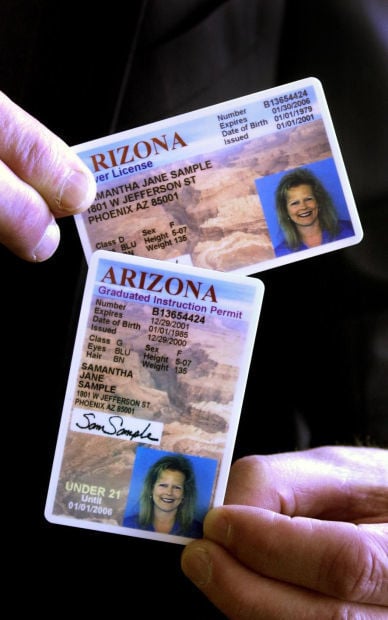PHOENIX — Arizona cannot legally deny “dreamers” the right to drive, a federal appeals court ruled late Tuesday.
A three-judge panel of the 9th U.S. Circuit Court of Appeals said Arizona cannot decide for itself who is legally entitled to be in this country. The judges said that power rests solely with Congress. The policy of denying licenses to those in the Obama administration’s Deferred Action for Childhood Arrivals program ran afoul of the Equal Protection Clause of the U.S. Constitution, the judges also said. That’s because the state was still issuing licenses to others in different deferred-action programs.
But the court did more than slap down the Arizona practice as illegal.
Judge Harry Pregerson, writing for the unanimous three-judge panel, said the 2012 policy instituted by then-Gov. Jan Brewer, was motivated to “a dogged animus” against dreamers.
“The Supreme Court has made very clear that such animus cannot constitute a legitimate state interest and has cautioned against sowing the seeds of prejudice,” Pregerson wrote. “The Constitution’s guarantee of equality must at the very least mean that a bare desire to harm a politically unpopular group cannot justify disparate treatment of that group.”
“Our clients are very ecstatic,” said Nora Preciado of the National Immigration Law Center, one of the attorneys who sued the state on behalf of DACA recipients. She said the dreamers, whom the state has been licensing under a temporary restraining order, can now be assured “their ability to get a license is not going to go away any time soon.”
A spokeswoman for Attorney General Mark Brnovich said he was studying the ruling and had no immediate comment. She said any decision on whether to appeal to the U.S. Supreme Court will have to wait.
Hanging in the balance is the right of the state to deny licenses to those in the Deferred Action for Childhood Arrivals program.
It allows those who arrived in this country illegally as children to remain if they meet certain other qualifications. They also are entitled to federal Employment Authorization Documents entitling them to work legally.
At last count, more than 29,000 Arizonans had qualified.
But just days before the Department of Homeland Security began taking applications, Brewer issued an executive order directing the Department of Transportation not to issue licenses to DACA recipients.
She cited a 1996 state law, which says licenses are available only to those whose presence in this country is “authorized by federal law.”
Brewer argued that the federal agency really had no legal authority to permit DACA recipients to remain or work. And what that meant, she said, is they were not “authorized” to be here.
But Pregerson pointed out that Arizona continued to issue licenses to others in different “deferred-action” programs who also had employment documents even as it was denying the right to drive to DACA recipients.
Pregerson also rebuffed arguments that ADOT was entitled to make that distinction.
“The federal government, not the states, holds exclusive authority concerning direct matters of immigration law,” he wrote.
“The states therefore may not make immigration decisions that the federal government, itself, has not made.”
Pregerson said there’s an even bigger problem with the Arizona policy: pre-emption.
“States may not directly regulate immigration,” he wrote.
Yet the Arizona policy that Brewer — and now Gov. Doug Ducey as her successor — has been trying to enforce is based entirely on a conclusion by the state that DACA recipients are not “authorized” to be in this country. And there is no such category under the federal Immigration and Naturalization Act.
“Because Arizona created a new immigration classification when it adopted its policy regarding driver’s license eligibility, it impermissibly strayed into the exclusive domain of the INA,” Pregerson wrote.
Tuesday’s ruling was not entirely a surprise.
The appellate judges had previously directed a trial judge to issue a temporary injunction blocking the state policy. ADOT officials said late Tuesday that as of mid-December, the most recent figures they had, more than 17,000 dreamers had been issued licenses while the state went to court to try to take them away.
And in a precursor of his “animus” comments in the ruling, Pregerson was on the offensive during a hearing last year as Assistant Attorney General Dominic Draye tried to persuade the judges to uphold the state policy and take away the licenses.
“Does it come down to racism?” Pregerson asked. “Does it come down to discrimination against these people? What else does it come down to?”
The questions left Draye confounded.
“Judge, I wish you wouldn’t say things like that,” he responded.
But Pregerson would not back down.
“I’m saying it because it’s the truth,” the judge responded.





